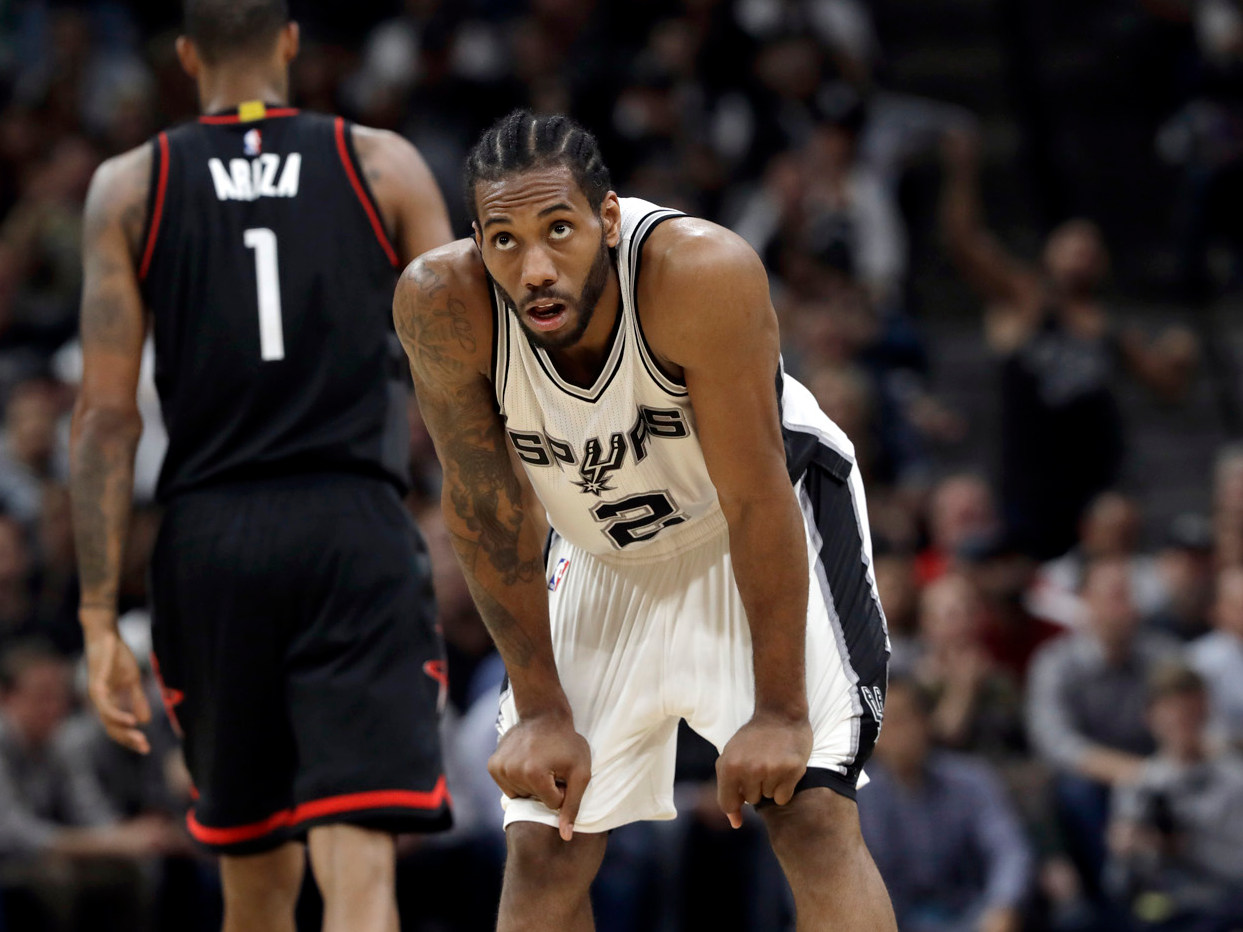The San Antonio Spurs evened up their series with the Houston Rockets on Wednesday with a 121-96 win in Game 2.
In some ways, the game was the inverse of the Rockets’ Game 1 blow out of the Spurs.
In Game 2, the Spurs dictated the pace, limited their turnovers, and held the Rockets to 32% three-point shooting, squashing the offensive fireworks that helped Houston blow Game 1 open.
In the process, the Spurs made a few key adjustments that seemed to help them match up with a Rockets team capable of exploiting San Antonio’s weaknesses. The Spurs ducked under some screens on James Harden, daring the 34% three-point shooter to let it fly (Harden went 2-of-9 from distance). They stuck a wing on Ryan Anderson at times, allowing them to switch more easily if Anderson screened for one of Houston’s ball-handlers. They also went smaller, playing four guards and wings with one lone big man, something Gregg Popovich has been reluctant to do.
But perhaps their most important adjustment was a simple one – they leaned hard on Kawhi Leonard. And Leonard delivered.
Offensively, Leonard didn't do too much differently. According to NBA.com/Stats, Leonard's touches were about the same, his elbow touches increased to just two from zero in Game 1, and the number of passes he made only decreased slightly from Game 1 to Game 2.
He did, however, simply perform better. After scoring 21 points on 5-14 shooting in Game 1, Leonard exploded in Game 2 for 34 points on 13-16 shooting, 3-4 from downtown. He added seven rebounds, eight assists, three steals, and a block as well.
Perhaps most importantly, the Spurs sent Leonard after James Harden. After Harden carved the Spurs for 20 points on 6-of-13 shooting and 14 assists in Game 1, he scored just 13 points on 3-of-17 shooting in Game 2, though he did add 10 assists.
According to ESPN, Harden was 0-5 with two turnovers when Leonard was guarding him. The Spurs have rotated defenders on Harden, also using Danny Green and Jonathon Simmons so as not to wear out Leonard, who is the primary driver of their offense.
The play below represents a simple shift by the Spurs. Leonard defended Harden by going under the second screen from Nene, rather than fighting over and risking Harden turning the corner. By doing so, it kept David Lee from having to switch - the Spurs lack big men nimble enough to stay in front of Harden on switches. Additionally, the benefit of having Leonard defend Harden is that Leonard is quick enough and long enough to still make a good contest on the shot.
Similarly, Leonard's length appeared to bother Harden on drives (Leonard actually fought over the screen in this instance).
After the game, Harden said he simply missed open shots. He's not entirely wrong - according to the NBA's stats site, the Rockets shot just 9-of-21 on "open" shots (a defender within 4-6 feet), going 5-of-15 from three-point range. In essence, the Rockets missed shots they were canning in Game 1.
As Ben Falk, former VP of Basketball Strategy for the 76ers, recalled, referencing Jeff Van Gundy, sometimes the biggest adjustments are not really adjustments at all.
SAS-HOU G2 reminded me of Jeff Van Gundy’s line (via Steve Clifford last year): “usually the adjustment is some guy who went 1/8 went 6/8.”
— Ben Falk (@bencfalk) May 4, 2017
However, the plan for the Spurs may be simple, especially now that Tony Parker is out for the playoffs - they're going to need a lot of Kawhi Leonard on both ends of the floor. Because regardless of who Leonard is guarding, the Spurs still play three big men in LaMarcus Aldridge, Pau Gasol, and David Lee who cannot help on Harden and recover to shooters or simply switch onto Harden and contain him.
After the game, Gregg Popovich hinted that Leonard's workload is going to remain heavy.
"Yeah, we ask him to do a lot. That's what great players do."
Leonard essentially can put out fires in a lot of places for the Spurs. He's their best hope at containing Harden and he's able to bother him with his length. And when he's not guarding Harden, he's going to be asked to stick to Houston's army of shooters to prevent open shots. This, in addition to carrying the offense.
The Spurs can make adjustments to minimize their weaknesses, but their biggest and most important adjustment may simply be tasking Leonard with more responsibility.

